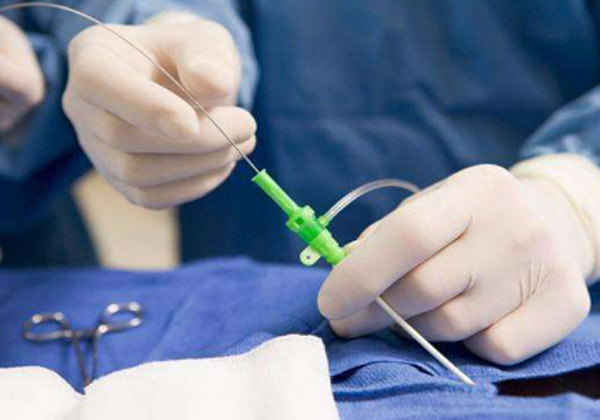Beyond the Binary: Surrogacy Options for Transgender and Non-Binary Intended Parents

Parenthood is a dream for many people, regardless of gender. For transgender and non-binary genders, becoming a parent can feel like a huge challenge, as there may be inconsistencies between their gender identity and biological sex, making traditional fertility difficult to achieve. But today, with advances in medical technology and societal attitudes, there are options available to help them realize this dream. One of these options is called surrogacy, where genetic material is used to create embryos through techniques such as in vitro fertilization (IVF), and a surrogate mother assists in the pregnancy and delivery. This approach not only provides transgender people with the biological possibility of parenthood, but also allows them to feel more included and supported as they build their families. In this article, we will discuss what surrogacy is and how it applies to trans and non-binary gendered people. We will also explore the steps, costs, and support systems to help you on your path to parenthood.
Why Surrogacy Matters for Trans and Non-Binary People
Many transgender and non-binary people want to become parents. Research shows that 80% people have considered having children in the future. However, realizing this dream can face many challenges, including fertility limitations and social and legal barriers.
- Some treatments (e.g. hormone therapy) may affect fertility
When trans people undergo gender affirming treatment, they often receive hormone therapy to help the physical characteristics more closely match their gender identity. For example, trans women may use estrogen, while trans men may use testosterone. These hormone therapies, while helpful in alleviating gender dysphoria, may have a negative impact on fertility. For example, long-term use of testosterone may lead to decreased ovarian function, which may affect ovulation and fertility, while estrogen may inhibit sperm production. Therefore, transgender people need to communicate fully with their doctors before starting hormone therapy to assess the impact on future fertility and to explore the need for measures to preserve fertility.
- Not all home building options are easily accessible
In addition to physical limitations, transgender and non-binary people face social and legal barriers. For example, assisted reproductive technologies such as surrogacy and in vitro fertilization (IVF) may be severely restricted or even banned altogether in some countries or regions. In addition, the family-building needs of transgender people may be overlooked or misunderstood, making it difficult for them to access necessary support and services. Even where surrogacy is permitted, high costs and social prejudice may be a hindrance. Therefore, transgender and non-binary genders need more inclusive policy and technology options to realize their dreams of a family.
Surrogacy provides a way for these individuals to have children even if they are unable to conceive on their own. Through surrogacy, transgender and non-binary people can utilize their own genetic material (such as sperm or eggs) to create embryos, with a surrogate mother assisting with the pregnancy and delivery. This approach not only provides them with the biological possibility of parenthood, but also allows them to feel more included and supported as they build their families.
Impact of gender-affirming treatments on fertility
- hormone therapy
Hormone therapies are an important part of the transition process for many trans people, but they can have profound effects on fertility. For example, testosterone therapy may stop normal ovulation in the ovaries of trans men, while estrogen therapy may reduce sperm count and quality in trans women. Although some studies have shown that fertility may partially return when hormone therapy is stopped, this is not always a viable or timely option. Therefore, it is critical to discuss fertility plans with your healthcare team before starting hormone therapy. - Fertility preservation
Fertility preservation is an effective way to help transgender people have children of their own in the future. This involves freezing and preserving eggs, sperm or embryos for future use. However, the practical application of this option is not widespread. For example, only 4.7% of transgender teens had their fertility preserved prior to medical transition. Reasons for this may include financial burden, lack of information, and psychological stress.
- ovum freezing
Egg freezing is an important option for trans men and non-binary people who have ovaries. Before starting hormone therapy, they can have mature eggs extracted and cryopreserved through ovulation stimulating drugs. This way, even if their future fertility is compromised, they still have the opportunity to become parents through surrogacy or other means. - sperm freezing
Sperm freezing is also a key option for trans women and non-binary people who have testicles. By extracting and preserving sperm, they can use this genetic material in the future to participate in assisted reproductive technologies, such as in vitro fertilization (IVF). This not only preserves the biological parent-child bond, but also opens up more possibilities for diverse family structures.
Surrogacy and other assisted reproductive technologies have opened the door to the dream of a family for transgender and non-binary people. However, many challenges remain in this process, including barriers at the medical, social and legal levels. Only through increased public awareness, improved medical services and more inclusive policies can more transgender and non-binary people realize their desire to become parents.
Pathways to Parenthood
Transgender and non-binary genders can become parents in different ways:
- Gestational surrogacy
Surrogate mothers carry babies with your genetic material. Surrogacy offers a way to achieve biological parentage for those who are unable to conceive on their own. Through in vitro fertilization (IVF), the sperm or egg of a transgender or non-binary person can be combined with the genetic material of a partner or donor to form an embryo, which is then conceived by a surrogate mother. This approach not only helps them overcome their fertility limitations, but also allows them to feel more included and supported in family building.
- have conceived
Some trans men and non-binary people can choose to get pregnant on their own. Although hormone therapy may affect fertility, some people have regained their fertility by taking a break from hormone therapy. This approach allows transgender men and non-binary people to experience the pregnancy process first-hand, creating a unique bond with the child. However, it also entails physical and psychological challenges and therefore needs to be done under the guidance of a professional medical team. - adopt (a child)
Adopting a child is another option. Through adoption, transgender and non-binary genders can establish a legal parent-child relationship with the same rights and obligations as biological children. However, the adoption process may face social prejudices and legal barriers, especially in regions that are not friendly enough to gender minorities. - Egg or sperm donation
Using donated eggs or sperm to create a baby. This is a viable option for people who are unable to use their own genetic material. With donated eggs or sperm, they can still have children and build their own families through surrogacy or partner pregnancy.
Financial considerations in surrogacy
- Egg donation: 20,000-30,000
- Embryo creation: 20,000-30,000
- Institutional costs: 20,000-50,000
- Compensation for surrogacy: 40,000-60,000
- Legal fees: 10,000 - 15,000

Legal and ethical challenges
- Legal framework
Laws on surrogacy vary from country to country. In some countries, commercial surrogacy is expressly prohibited, while in others it is strictly regulated or fully legalized. In the United States, for example, surrogacy laws are left to the states and therefore vary significantly. States such as California are considered surrogacy-friendly, offering strong legal protections to ensure that surrogacy agreements are legally binding and provide clear rights and obligations for surrogate mothers and intended parents. However, in other states, such as New York (where the ban was only partially lifted in recent years), surrogacy agreements may not be recognized or even considered illegal. This legal inconsistency not only adds to the complexity of interstate or transnational surrogacy, but may also lead to potential legal disputes, particularly with respect to paternity determinations and contract enforcement. - ethical question
Ensuring the health and well-being of surrogate mothers is important. The surrogacy process can have an impact on the physical and mental health of the surrogate mother, including pregnancy complications and emotional challenges. Therefore, it is vital to have a complete medical and psychological support system in place to guarantee that the surrogate mother receives adequate care and support throughout the process. In addition, a clear contract helps everyone understand their roles. A detailed surrogacy agreement not only clarifies the rights and responsibilities of both parties, but also effectively minimizes misunderstandings and conflicts. However, even with contractual guarantees, surrogacy still faces many ethical controversies, such as the potential exploitation of vulnerable groups and the definition of the child's "real" parents. These challenges need to be gradually resolved through the combined efforts of law, medicine and society to maximize the protection of the rights and interests of all participants while respecting individual choices.
Navigating medical and psychological support
- health care
Finding physicians who understand the needs of trans and non-binary patients. Transgender and non-binary people are often at risk of being discriminated against or not understood when seeking medical care. Therefore, it is crucial to choose a doctor with knowledge and experience in gender diversity. Such a medical team not only provides individualized care, but also ensures that the patient's unique needs are respected and met throughout the surrogacy or pregnancy process. Additionally, regular checkups ensure everyone's safety. Through regular checkups, doctors can monitor the health of the surrogate mother as well as the development of the fetus, while providing the intended parents with the necessary medical guidance to help them make informed decisions.
- Psychological counseling
Counseling helps intended parents and surrogate mothers prepare for the journey. The surrogacy process can bring complex emotional challenges, including concerns about the parent-child relationship and anxiety about unknown outcomes. A professional counselor can help both parties better understand their emotions and establish healthy communication. Discussing feelings makes the process easier. Whether it's the intended parents' expectations of their future roles or the surrogate mother's psychological state during pregnancy, an open dialog can reduce misunderstandings and increase trust. This psychological support not only relieves stress, but also creates a more positive and collaborative environment for all involved, which ensures that the process runs smoothly.
Surrogacy in Global Perspective
Countries with progressive policies
Kyrgyzstan, Canada and the United Kingdom have laws supporting surrogacy.
They make it easier for trans and non-binary people to become parents.
More restrictive countries
India, Ukraine and Thailand have less protection.
Care needs to be taken when choosing a surrogacy country.
common problems
1. Is surrogacy suitable for all transgender and non-binary people?
Surrogacy is not suitable for everyone and varies according to physical, legal and financial conditions. While it provides parenthood opportunities for those who are unable to have children through traditional means, it involves high costs, complex legal procedures and psychological challenges. It is advisable to consult a reproductive medicine specialist or a surrogate agency to assess the individual's situation and develop a plan.
2. If I am unable to use my own genetic material, can I still become a parent through surrogacy?
Even if you are unable to use your own genetic material, you can still realize your dream of parenthood through egg or sperm donation combined with surrogacy. For example, using a partner's or third-party donor's eggs/sperm, an embryo is created through in vitro fertilization (IVF) and the surrogate mother carries the pregnancy to term. This approach does not involve biological genetics, but can help create complete families.
3. In which countries is surrogacy legal and supportive of transgender people?
Some countries, such as Canada, the United Kingdom and Kyrgyzstan, have supportive surrogacy policies that allow transgender and non-binary people to become parents through surrogacy. However, in countries such as India and Ukraine, surrogacy laws are less protected or even restricted. Intercountry surrogacy requires detailed knowledge of the laws of the target country and professional support to ensure that the process is legal and safe!
.
summarize
Transgender and non-binary people can also become parents. Surrogacy is a way to build a family, especially for those who are unable to have children through traditional means, and it offers a path to realizing the dream of parenthood. However, this process requires support on many fronts. With the right medical care, legal help, and support, you can more successfully realize your dream of parenthood. If you are considering surrogacy, consult with your doctor or a professional agency. They can guide you through the process and answer your questions, from medical tests to legal contracts, ensuring clarity and safety every step of the way. Remember, you're not alone - there are many resources to help you succeed, including counseling, support groups, and specialized services for transgender and non-binary people.